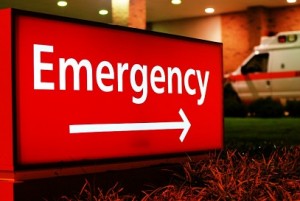More than two-thirds of emergency department visits for opioid overdoses involve prescription drugs, a new study finds.
Researchers from Stanford University analyzed tens of thousands of reports of opioid overdoses nationwide from 2010, HealthDay reports. Approximately 68 percent involved prescription drugs, the researchers write in JAMA Internal Medicine. The number may be even higher, since 13 percent of cases did not specify the drugs involved. In 3 percent of cases, multiple narcotics were involved. Heroin alone was involved in 16 percent of overdose cases.
“Opioid overdose exacts a significant financial and health care utilization burden on the U.S. health care system,” the researchers wrote. “Most patients in our sample overdosed on prescription opioids, suggesting that further efforts to stem the prescription opioid overdose epidemic are urgently needed.”
The study found 84 percent of prescription opioid overdoses occurred in urban areas, and 40 percent took place in the South. Women accounted for 53 percent of prescription opioid overdoses.
Many patients who came to the hospital for overdoses had other illnesses, such as chronic mental health problems, or circulatory or respiratory diseases. About half of the patients who were rushed to the ER for opioid overdoses were admitted to the hospital.
